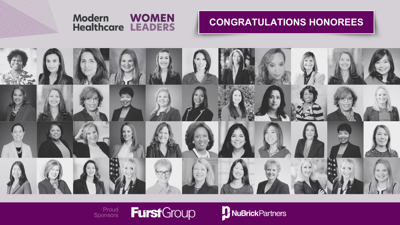If healthcare has anything like the Good Housekeeping seal of approval, it is probably accreditation by the National Committee for Quality Assurance, the organization that Margaret “Peggy” O’Kane founded in 1990.
One in a series of profiles of Modern Healthcare’s Top 25 Women in Healthcare (sponsored by Furst Group)
If healthcare has anything like the Good Housekeeping seal of approval, it is probably accreditation by the National Committee for Quality Assurance, the organization that Margaret “Peggy” O’Kane founded in 1990.
Besides her appearance as one of Modern Healthcare’s Top 25 Women in Healthcare, O’Kane often is also recognized as one of the 100 Most Powerful People in Healthcare by the magazine. And for good reason. The Healthcare Effectiveness Data and Information Set is NCQA’s quality measurement tool that is the gold standard in the industry.
O’Kane is a champion of healthcare institutions, but she is also tough on them.
“In an emergency situation, you’re often not in a position to make a choice – you go wherever the ambulance takes you,” she says. “We need to have hospitals that are uniformly safe.”
Safety, as one might imagine, is paramount to O’Kane.
“Safety resonates with the public,” she says. “When you tell an audience how many people die because of medical errors, people are completely astounded and appalled. There is great work being done, but it’s uneven.”
The beauty of NCQA’s work is that it sets a bar high without condemning the caregivers, whom O’Kane believes are “great people who want to do the right things. People go into healthcare to do good for patients and by patients.”
O’Kane has a master’s in health administration and planning from Johns Hopkins and worked for several years with an HMO trade association, but also has a renaissance background that includes a degree in French and work as a respiratory therapist and as an elementary school teacher. She says she believes healthcare is “behind other sectors” when it comes to women in leadership.
“I continue to be struck by how few women and minorities are in leadership in healthcare organizations aside from traditional roles like heads of nursing,” she says. “One of the great things that diversity brings is different perspectives. Healthcare still has a ways to go to be more representative of patients.”
For women emerging as leaders in healthcare, O’Kane’s counsel is twofold:
“Be stubborn”: “We’re in a period where change is the right thing to do. You’ve got to be really determined to bring that change.”
And “listen”: “Listening to patients is one of the major tasks of healthcare.”


